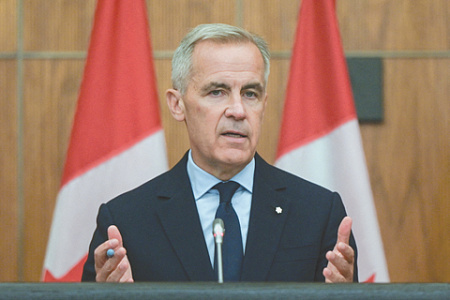
A significant thaw in U.S.-Canada relations appears imminent after Canadian Prime Minister Mark Carney announced a rollback of retaliatory trade restrictions against the United States. The move, which follows a phone call with U.S. President Donald Trump, aims to de-escalate a months-long trade war but has drawn sharp criticism from opposition parties and labor unions at home, who view it as a premature concession.
Prime Minister Carney stated that Canada will gradually lift its tariffs on a majority of American exports by September 1, specifically targeting goods covered by the USMCA free trade agreement. However, tariffs on key industrial products like steel, aluminum, and automobiles will remain in place pending further negotiations. Carney defended the decision not as a gesture of goodwill, but as an act of economic necessity, arguing that preserving Canada’s preferential trade relationship with its largest partner is paramount.
The trade dispute escalated under the previous administration of Justin Trudeau, who imposed retaliatory duties after President Trump initiated the conflict with steep tariffs on Canadian goods. The White House justified its aggressive stance by citing Canada’s alleged inaction on illegal migration and drug trafficking—claims that Ottawa has largely refuted. Many analysts believe Trump’s underlying motivation was to protect the American oil industry from Canadian competition as part of a broader protectionist policy.
Carney’s olive branch to Washington was met with immediate domestic backlash. Unifor, the country’s largest private-sector union, lambasted the move, with its leader Lana Payne stating it “only encourages U.S. aggression.” Meanwhile, Conservative Party leader Pierre Poilievre accused the Prime Minister of “capitulation,” reminding the public that Carney won the recent election on a promise to take a tough negotiating stance with Trump.
Despite the political fallout, the economic damage from the trade war has been undeniable. The heavy U.S. tariffs on Canadian steel and aluminum, both major exports, have severely impacted the nation’s industrial sector. The automotive industry hub in Ontario has reported significant job losses as a direct consequence. With the USMCA agreement, which covers about 85% of bilateral trade, scheduled for a review in 2026, Carney is seemingly calculating that a de-escalation now is crucial to avoid a deeper economic crisis and secure favorable terms in the future.
By taking the first step to dismantle tariff walls, Carney’s government is betting on successful negotiations for a mutually beneficial deal. The hope in Ottawa is that this concession will be met with reciprocity from the Trump administration, rather than being exploited as a sign of weakness in the high-stakes world of international trade.
